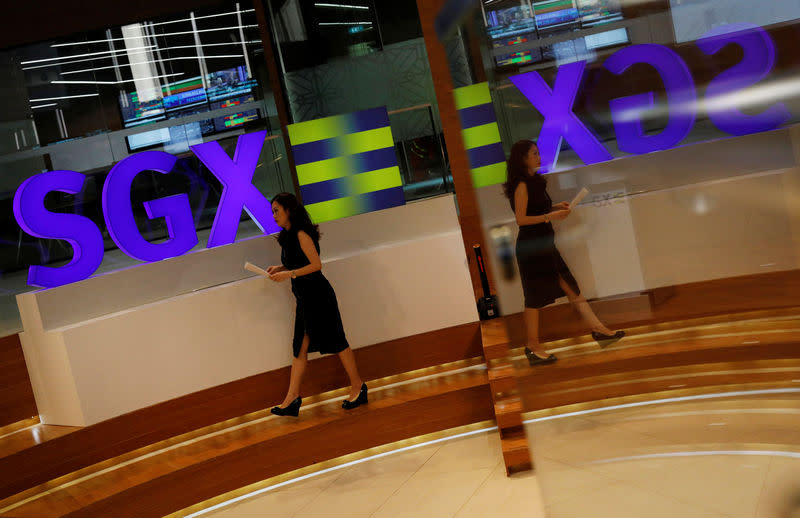Singapore Exchange faces threat from HKEX China share move

By Melissa Cheok
(Bloomberg) — Moves by Hong Kong’s stock exchange to start trading derivatives contracts based on Chinese-listed shares pose a new competitive threat to rival Singapore Exchange Ltd.
Hong Kong Exchanges & Clearing Ltd. announced on Monday it signed an agreement with index provider MSCI Inc. to start trading Chinese equity futures, laying the groundwork for another avenue through which global investors can hedge exposure to China’s $7 trillion stock market. The HKEX plans are subject to regulatory approval.
When trading starts, it will end SGX’s effective monopoly on offshore derivatives based on Chinese A shares which it has held since trading in its FTSE China A50 contract started in 2006. That will be a challenge for a derivatives contract which has been an important driver of SGX’s growth in recent years, according to Citigroup Inc. analysts led by Robert Kong, who downgraded SGX shares to a sell from neutral.
“We welcome steps to support China’s internationalization and increasing investor access to Asia’s most important emerging market,” SGX said in a statement. “SGX market participants will benefit from an even larger liquidity pool for our suite of China equity derivatives, as the interaction of different trading venues will create more flows.”
Though the timing of HKEX’s product launch has yet to be determined, as regulators in Hong Kong and China review the application, trading is expected to start within months rather than years, the Citigroup analysts said.
HKEX’s move could lead to a 15 percent decline in China A50 volumes over the next two years, according to Credit Suisse Group AG analysts, who said they don’t expect trading in Hong Kong to start until after November.
First Mover
Krishna Guha, an analyst at Jefferies in Singapore, was more sanguine about SGX’s prospects.
“While we keep an eye on competing products, we are not overly concerned,” Guha said, adding that SGX has first-mover advantage in China futures contract offerings.
SGX shares fell 1.2 percent at 1:21 p.m. in Singapore on Tuesday, after dropping 3.7 percent on Monday. HKEX shares climbed 1.8 percent after rising 2.1 percent the previous day.
The FTSE A50 contract generated about 40 percent of SGX’s total derivatives volume in the last quarter. The futures have a daily turnover of $5 billion and notional open interest of $12 billion. An estimated $8 billion in exchange-traded funds are benchmarked to the index.
HKEX’s plans add to a series of challenges faced by the Singapore exchange, including a dearth of new listings and a dispute with the National Stock Exchange of India over the licensing of Nifty 50 Index futures and options contracts.
© 2019 Bloomberg L.P

 Yahoo Finance
Yahoo Finance 